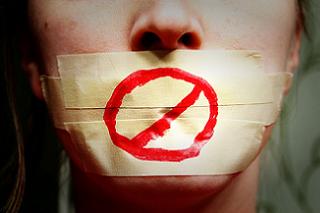 Photo: CC-by-ND - Jennifer Moo via Flickr
Photo: CC-by-ND - Jennifer Moo via FlickrOn 11 July 2011, the Knesset plenum passed the Anti-Boycott Law, which enables the filing of civil lawsuits against those who call for a boycott of the State of Israel or any of its territories (e.g. Israeli settlements). ACRI and its partners submitted a legal petition to the High Court of Justice seeking the law’s invalidation. On April 15, 2015, the court handed down its ruling in which it left most of the law intact, while invalidating one important clause that would allow plaintiffs to seek damages without having to prove that they suffered any harm from the call to boycott.
ACRI has prepared the following Q&A document, to explain the legal implications of this law.
Is it prohibited to call for a boycott of Israel? Is it a criminal offense?
Calling for a boycott, under the terms detailed in the law, is not a criminal offense but might be deemed as a civil wrong, which is subject for financial compensation. Meaning: there is no legal prohibition on calling for a boycott, but those who do so might be exposed to lawsuits and economic sanctions.
To whom does the law apply?
According to section 2(A) of the law, it applies to someone “who knowingly publishes a public call for a boycott against the State of Israel, where according to the content and circumstances of the publication there is reasonable probability that the call will lead to a boycott, and he who published the call was aware of this possibility.” According to this definition, the law applies to any person who publicly participates in a call for boycott, for example in signing a petition or by making a statement in the media, even if this person did not initiate the boycott.
Does the law apply only to Israelis?
It appears that the law applies to anyone who is in Israel when calling for boycott.
To which boycotts does the law apply?
The law applies to economic, cultural, or academic boycott of the settlements, the State of Israel, or any of its institutions. Therefore, for example, a boycott of academic institutions in Israel or in Israeli settlements, or a consumer boycott of settlement products – are included within this law.
What could be the implications of calling for boycott?
Anyone who publishes a call for boycott as defined in the law could be subject to a civil lawsuit (for compensation) filed by those who were harmed by this boycott, for damages, economic or otherwise, caused to them. Furthermore, according to section 2(b) of the law, if a company violates or cancels a contract because of a call for boycott, those who called for the boycott can be sued for any subsequent damages.
Further sanctions, that could apply to companies and organizations, are limiting their ability to participate in state tenders and limiting their eligibility to receive various kinds of support from the State (such as being considered a public institution, including for budgetary support or income tax benefits, receiving funding from the Council to Regulate Sports Gambling, guarantors under the Guarantors on Behalf of the State Law, and benefits under the Encouragement of Capital Investment Law or under to the Encouragement of Research and Development in Industry Law).
Does the plaintiff have to prove damages?
The High Court of Justice invalidated Section 2(c) of the law – a clause that enabled the court to order the defendant to pay compensations even in the absence of any evidence that damage has been suffered. This means that the court may order those who called for boycott to pay punitive damages only if there is proof that their action caused economic harm to the plaintiff. In calculating the sum of these damages the court must take into consideration, among other things, the circumstances under which the wrong was carried out, its severity, and its extent.
Could those who call for boycott be arrested?
No. As stated above, the law defines a call for boycott as a civil wrong, which could lead to a civil lawsuit for damages or to the limitation of various economic benefits from the State. A call for boycott is not a criminal offense.
Has the law already taken effect?
The law is in effect since 13 July 2011, when it was published in Israel’s Book of Laws (link to PDF file in Hebrew). The only exception to this is section 4 of the law, which stipulates the sanctions of preventing various economic benefits from companies and organizations, and will take effect 90 days after this date.
But what about the petitions against this law, which are being filed to the High Court?
On an individual level, even if high court petitions are filed, the law is in effect as long as there is no High Court ruling that disqualifies it. Therefore, any person or organization that calls for boycott as defined in this law is exposed to a lawsuit and for other sanctions determined by this law.
In the public arena, it is very important to fight this law, including through a petition to the High Court, since this law is has a dangerous chilling effect on freedom of expression and freedom of protest in Israel, meaning that it could deter citizens from voicing criticism or from protesting, for fear of being harmed by the authorities.








Pingback: Bojkottslagen « Anna Veeder
Pingback: Anonymous